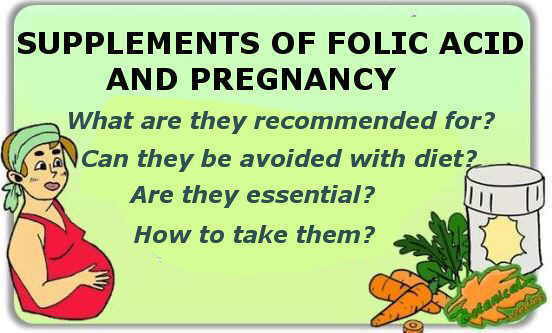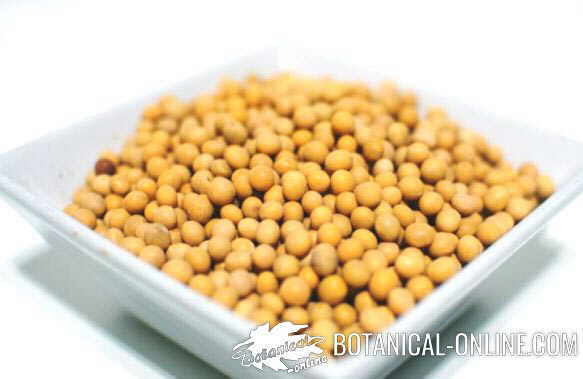Contents
- 1 Supplementation with folic acid for pregnant women: quantity, types and recommendations
- 1.1 Folic acid to ensure a good fetus development
- 1.2 How to take supplementation with folic acid (vitamin B9) during pregnancy?
- 1.3 Uses of folic acid supplements (vitamin B9)
- 1.4 Is it imperative for pregnant women to take folic acid?
- 1.5 Can one do without the supplement if the diet is rich in folic acid?
- 1.6 Diet rich in folic acid
- 1.7 Amount of vitamin B9 or folic acid in pregnancy
- 1.8 How long to take this pregnancy supplement?
- 1.9 How or when to take this supplement?
- 1.10 What type of folic acid (vitamin B9) supplement is best?
- 1.11 Folic acid in the form of methyl tetrahydrofolate
- 1.12 Is it recommended that pregnant women take 5-MTHF?
- 1.13 Are multivitamins recommended in pregnancy?
Supplementation with folic acid for pregnant women: quantity, types and recommendations
Folic acid to ensure a good fetus development
Folic acid (vitamin B9) is a water-soluble vitamin B group that is recommended to take during pregnancy, along with vitamin B12 (cobalamin). The main purpose of this supplementation is to ensure a good development of the fetus during pregnancy.

Main doubts in folic acid supplementation (vitamin B9) during pregnancy
How to take supplementation with folic acid (vitamin B9) during pregnancy?
The following are the main questions that pregnant women have when they are recommended by their doctor to take these supplements:
- Can one do without the supplement if the diet is rich in folic acid?
- How long should vitamin B9 be taken?
- What amount of vitamin B9 should be taken?
- Are multivitamins recommended?
- What is the best folic acid supplement (vitamin B9), or which ones are recommended?
- Is it recommended that pregnant women take 5-MTHF?
Uses of folic acid supplements (vitamin B9)
Folic acid supplements (vitamin B9) are used in many medical therapies (in conventional medicine), such as:
- Preparation of pregnancy (both in men and women)
- Pregnancy and lactation
- Fertility problems
- Heart disease and high cholesterol problems (lowers homocysteine)
- Anemia
- Obesity and metabolic syndrome (high bad cholesterol, high triglycerides)
- Coadjuvant in the treatment of cancer
Is it imperative for pregnant women to take folic acid?
It is recommended that all pregnant women take this supplement, as there is no kind of risk or toxicity, and supplementation may have potential benefits.
Can one do without the supplement if the diet is rich in folic acid?
During pregnancy the requirements of this vitamin increase significantly. Some women are reluctant to take supplements and the question is often asked whether it is possible to substitute folic acid supplements for a diet rich in vegetables.
If we were talking about healthy people, it is not necessary to take folic acid supplements since this vitamin must be provided by a healthy diet.
However, in case of pregnancy or suffering from certain diseases, it is highly recommended to take supplements, at least for a few weeks or months, without replacing a diet rich in this vitamin. Folic acid supplements are one of the most harmless that exist, as they have been tested in high doses, and have no toxicity or contraindications. Everything indicates that they can provide many more benefits than disadvantages.
Diet rich in folic acid
To ensure a good intake of folates in the diet, it is always recommended to increase the consumption of all types of green vegetables and leaf, regardless of whether supplements are taken or not. This recommendation is also due to the high nutritional value of foods naturally rich in folic acid, which also provide other nutrients.
Pregnant women, and all people in general, can ensure their good contribution of folic acid through food through the following points:
- Foods rich in folic acid are mainly green leafy vegetables, such as spinach, Swiss chard, broccoli, etc. Legumes, fruits and nuts (without frying and without salt) are also good sources of this vitamin.
- It must be taken into account that, when boiling vegetables, part of this vitamin is lost in the cooking broth (it is water-soluble).
- Recipes very rich in folic acid would be steamed broccoli, cream of vegetables, sautéed leaf vegetables cream , etc.
Amount of vitamin B9 or folic acid in pregnancy
The usual dose of supplementation is usually 400 mcg daily of folic acid, combined with 1,000 mcg of vitamin B12, since folic acid decreases the levels of this last vitamin. It is recommended to check the label and see clearly this dosage.
How long to take this pregnancy supplement?
It is advisable to take vitamin B9 if possible before conception, to improve the quality of the genetic material. If pregnancy has already occurred, from the first weeks of pregnancy and until delivery.
How or when to take this supplement?
Folic acid can be taken at meals or between meals. The most active form is taken by placing the tablets under the tongue.
What type of folic acid (vitamin B9) supplement is best?
In general, all vitamin B9 supplements on the market are adequate. It is recommended to look for those supplements that clearly indicate how much folic acid they contain per pill or tablet.
Within folic acid supplements, two types are found on the market:
- “Normal” folic acid
- Supplements that contain a special form of folic acid: It is a more active type, called methyl-tetrahydrofolate (also called 5-methyl-tetrahydrofolate, 5-MTHF or methylolphin). The biggest drawback of vitamin B9 in the form of methyl-tetrahydrofolate is that its price is more expensive than “normal” vitamin B9.

Drawing of vitamin B supplement. Folic acid or folate is vitamin B9.
Folic acid in the form of methyl tetrahydrofolate
Healthy people and pregnant women can take “normal” folic acid. It is only important that some pewople take vitamin B9 in its most bioavailable form, that is, in its “methyl” (methylfolate or methylolphin). This refers to people who are in the following cases: people who smoke, people with high homocysteine levels, people with chronic renal failure.
Is it recommended that pregnant women take 5-MTHF?
You can take the methyl form in pregnancy, but there are some professionals who are reluctant to this type of supplementation. The main reason to discourage this supplement in pregnant women is caution. Ask your doctor what you recommend in your particular case if you have questions.

Drawing of woman in pregnancy.
It is not recommended that pregnant women take vitamin B9 in the form of 5-MTHF for the following reasons:
- In a double-blind 2015 study of more than 100 pregnant women, it was determined that there was no difference between using “normal” vitamin B9 and the “methyl” form. It is also worth mentioning that women who used the “methyl” form had no more or less problems than those who used the “normal” form of the supplement.
- Although it may seem that this potent form of vitamin B9 is more “effective”, its toxicity is also a little less investigated.
- Many times “vitamin B9 methyl” (methyl-tetrahydrofolate) supplements are accompanied by B6 and B12 (also in its methyl form). High doses of vitamins can have unexpected effects.
Are multivitamins recommended in pregnancy?
It is not recommended to take multivitamins during pregnancy. Only the 4 nutrients that are required, such as vitamins B9 and B12 already mentioned in the text, iodine and sometimes iron, should be taken.
For the rest of nutrients, it is not necessary to take any supplement since it is much better to get them through food.
In addition, some supplements that appear harmless can be toxic or harmful by containing vitamins in an inadequate or chemical form, as is the case with some vitamin A supplements (retinoids) or some forms of vitamin E.
* Related information:
– Folic acid diet during pregnancy
![]() More information on vitamins.
More information on vitamins.
| Vitamin B1(Thiamin) | Vitamin B2(Riboflavin) | Vitamin B3(Niacin) |
| Vitamin B5(Pantothenic acid) | Vitamin B6(Pyridoxine) | Vitamin B7(Biotin) |
| Vitamin B9(Folic acid) | Vitamin B12(Cobalamin) | Choline |
| Inositol | PABA | Lipoic acid |
![]() More information about vitamins.
More information about vitamins.









